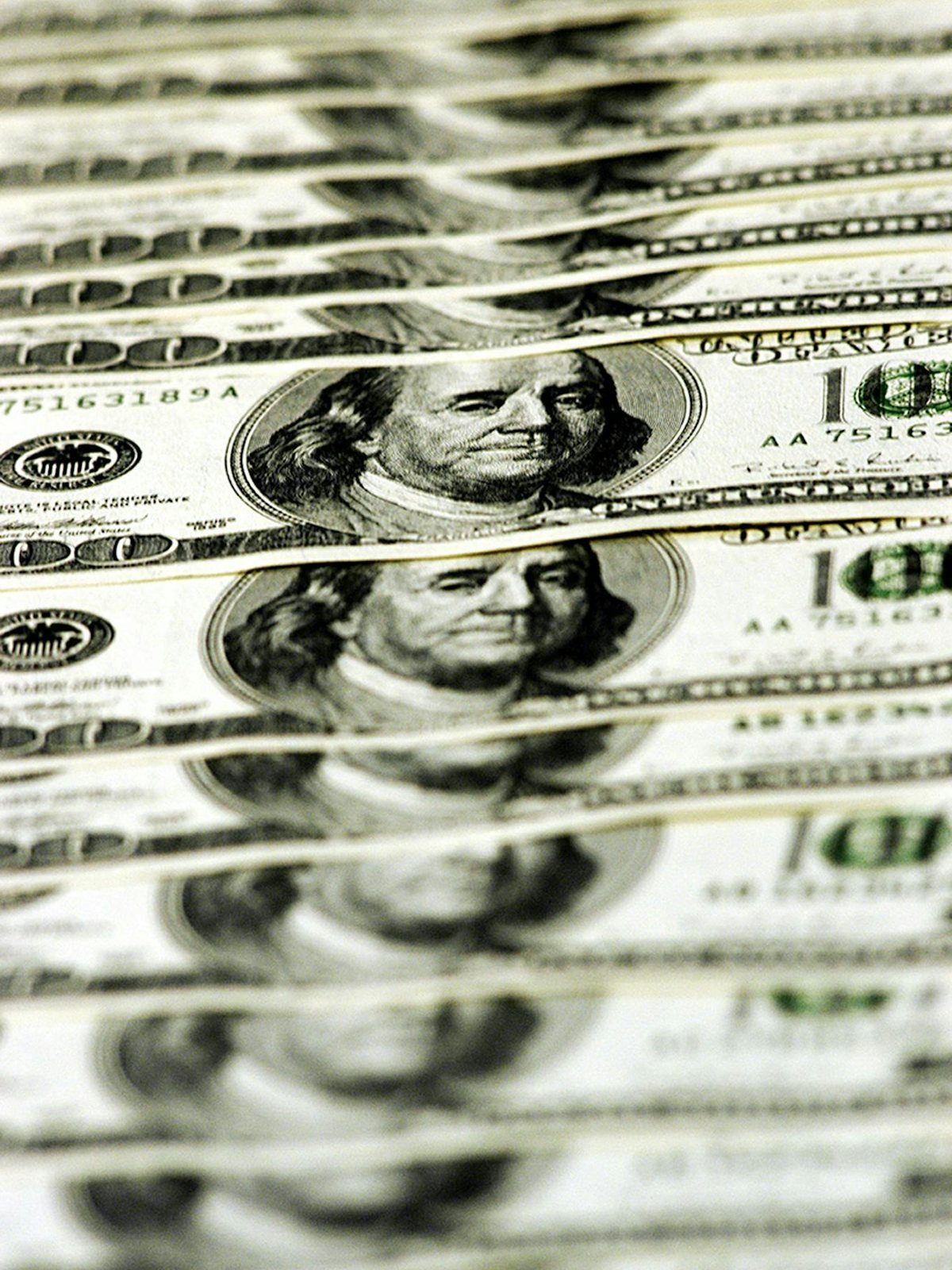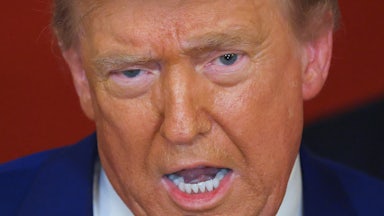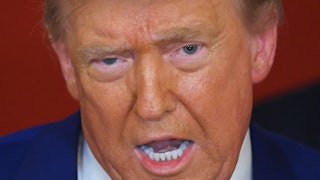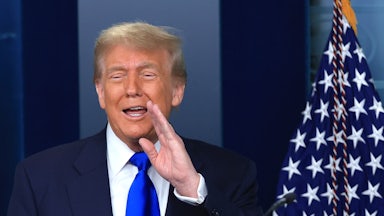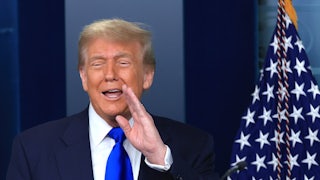In March, federal agents raided the Beverly Hills premises of a company called U.S. Private Vaults. According to a subsequent grand jury indictment, U.S. Private Vaults was a money laundering operation where drug dealers and others could anonymously stash fentanyl, guns, and “huge stacks of $100 bills” in safe deposit boxes. U.S. Private Vaults didn’t really bother to hide its business, boasting in ads, “We don’t even want to know your name.” It also shared its strip mall storefront with Gold Business, which allegedly specialized in laundering drug money via purchases of gold.
The case of U.S. Private Vaults is just one of the many money laundering schemes uncovered by federal investigators in the United States every year. Perhaps the most notable aspect of the story is how blatantly old school it all seems: the gold for cash, the drugs stuffed in safe deposit boxes. In our current golden age of money laundering, the schemes are usually much harder to suss out, the players are far more sophisticated, and the amount of money laundered in the U.S. yearly is nearly unfathomable: Experts say the figure runs into the hundreds of billions of dollars a year.
America’s money laundering problem became much clearer last fall, when BuzzFeed and the International Consortium of Investigative Journalists published a blockbuster exposé revealing that, from 1999 to 2017, banks filed reports detailing $2 trillion worth of suspicious activity to a tiny 300-person Treasury Department unit called the Financial Crimes Enforcement Network, or FinCEN. Known as the FinCEN files, the trove of leaked documents shone new light on how the U.S became a magnet for money launderers from around the world, from drug cartels and human traffickers to Russian oligarchs and African kleptocrats, due in good measure to systemic regulatory problems. All too often they found safe havens for their illicit gains in U.S banks, as well as real estate, Bitcoin, art, and other investment niches.
“The U.S. is still the venue of choice for money launderers, cartels, and corrupt politicians the world over,” Ross Delston, an independent American attorney and anti–money laundering expert, told me. “Our anti–money laundering framework is filled not with cracks or crevices but rather is replete with open doors, windows, and arms.”
Exacerbating the problem is the inability of the U.S. government to effectively punish the money launderers’ enablers. Finance behemoths like Deutsche Bank, HSBC, and others have collectively paid billions of dollars in the last two decades to settle state and federal charges that they failed to thwart laundering scams that were carried out through channels they had provided.
Deutsche Bank is one of several global finance giants that seem to have grown accustomed to paying hefty fines. Last summer, it ponied up $150 million to New York regulators related to its business ties to two banks involved in giant money laundering operations, as well as its dealings with Jeffrey Epstein, the notorious sex trafficker. And those fines were dwarfed by a $425 million penalty Deutsche Bank paid in 2017 to the same regulators for the role that its branches in New York, London, and Moscow allegedly played in a $10 billion laundering operation originating in Russia.
Experts and former prosecutors say that such fines have essentially become the cost of doing business, and that America’s entire approach to money laundering needs radical rethinking.
“The threat of a prison sentence is much more persuasive than the threat of a large money penalty,” Jim Richards, a former anti–money laundering director at Wells Fargo and other big banks who now runs Regtech Consulting, told me. “It’s pretty simple: Anything that can be fixed with money isn’t a problem to a large bank, it’s simply an expense.”
The pressure is on regulators and Congress to close loopholes that have allowed hundreds of billions of dollars yearly in dirty money to be laundered. In January, Congress overrode a veto by President Trump of a massive defense bill that contained the Anti–Money Laundering Act of 2020, the first major update to bolster laundering controls in 20 years. It provides new technology and funding resources to the historically strapped FinCEN, the chief regulatory body that tracks suspicious financial transactions, while providing new incentives to whistleblowers and strengthening coordination among federal agencies.
A central component of the Anti–Money Laundering Act is the Corporate Transparency Act, which requires that corporations and LLCs disclose to a new FinCEN registry their real “beneficial owners”; law enforcement and some financial institutions will have access to the registry. The CTA’s goal is to curb financial scams by shell companies that have been able to launder money by hiding their owners’ true identities.
But is it enough?
The economic cost of money laundering operations is staggering. A United Nations agency in 2020 pegged the annual amount of money laundered worldwide at $800 billion, or between 2 and 5 percent of global gross domestic product.
But money laundering is not merely an economic crime. A snapshot of the painful human costs was on display this March at congressional hearings. Legal and criminal experts told a House panel that human trafficking, a growing scourge in the U.S. and overseas, has been fueled by criminals who launder their illegal proceeds via multiple business routes.
“As online human trafficking and child exploitation grows through internet activity, there is an ever-greater need to launder large amounts of money,” Louise Shelley, a professor at George Mason University who testified at the hearing and has authored books on corruption and money laundering, told me. “Human traffickers use all known forms of money laundering to hide their proceeds,” including trade, real estate, and most recently cryptocurrencies.
The U.S. has earned the unenviable distinction of being the nation of choice for money laundering needs, as many other countries have moved more aggressively to crack down on financial corruption by tightening rules on corporate secrecy and implementing other curbs.
“The more the rest of the world clamps down on corporate secrecy, the more criminals, corrupt officials, and other wrongdoers will turn to the United States to form corporations with concealed owners,” Elise Bean, a former top investigator for ex-Senator Carl Levin and the author of a book on money laundering, told me. “When it comes to corporate ownership transparency, the United States is lagging behind its peers, and the whole world knows it.”
Bean stressed that the new Corporate Transparency Act is a positive step forward. “The new law gives the United States a chance to catch up, and the Treasury has recently picked up the ball to run with it,” Bean said.
Senator Sheldon Whitehouse, one of the key champions of the new law, sees it as a good first step in a broader battle against money laundering. “I think the bill we got on beneficial ownership is a beachhead into trying to reclaim this corrupt dark money economy,” Whitehouse told me. “Money laundering through shell corporations has been shown to facilitate everything from Iranian government officials to international child trafficking groups. Whether you’re an international criminal or whether you’re a kleptocrat, the money you make from your illicit activities is vulnerable, unless you can squirrel it away someplace secure.”
Whitehouse also believes money laundering is a foreign policy issue, saying it is a “clash of civilizations between rule-of-law countries and kleptocratic, autocratic, and criminal-run countries.” Still, Whitehouse acknowledged that the Corporate Transparency Act had gaps, including barring most state officials and the public from access to beneficial ownership information about shell corporations. “We lost those battles,” he said.
To some anti–money laundering experts, however, the gaps in the law look more serious. “The CTA provides a virtual GPS for launderers to legally avoid its reach,” lawyer Ross Delston told me. “No registration with the database is required for companies that have more than 20 full-time employees, more than $5 million in gross receipts or sales, and operate at a physical U.S. location.”
Delston stressed that “unlike the U.K., EU, and India, all of which have online systems open to anyone,” the new CTA database won’t be public, and will limit access to “law enforcement along with a select group of financial institutions,” such as mutual funds and banks, but not insurance companies or hedge funds.
Besides these gaps in the CTA, other, older money laundering loopholes that need closing under existing law are on the radar of some in Congress. Representative Tom Malinowski, a key sponsor of the recent legislation in the House, told me that regulations need to be expanded to curb money laundering risks by real estate advisers, hedge funds, law firms, art dealers, and others. “I expect there will be formal requests for the administration to do this,” Malinowksi told me. On May 3, Malinowski and Whitehouse wrote to Treasury Secretary Janet Yellen urging that anti–money laundering requirements be added for hedge fund advisers and private equity firms, as well as other measures to combat foreign kleptocrats moving dirty money through the U.S. and international financial systems.
“I’d like the administration to assign a higher priority to dirty money,” Malinowski explained. In a tip of the hat to the FinCEN files, Malinowski added, “We have groups of investigative journalists arguably doing more cutting-edge work on this than U.S. intelligence agencies with their enormous budgets.”
In the near term, Tom Cardamone, who leads the think tank Global Financial Integrity, thinks it’s imperative to give FinCEN a budget increase beyond the modest 10 percent hike in the new law, in part to expand its limited technical and data operations. “The current FinCEN budget is about the same as one F-35 aircraft,” Cardamone told me. “For the cost of two F-35s, you would have the most well-funded finance intelligence unit in the world.”
A growing challenge for regulators is that money launderers have only grown more sophisticated in their techniques. “The problem posed by kleptocrats and other corrupt politicians using the worldwide financial system to launder trillions in stolen loot is multifaceted and not easily soluble,” Paul Pelletier, a former acting chief of the fraud section at the Justice Department, told me.
Russian oligarchs, for example, have been known to use more highbrow, esoteric avenues to launder their dirty money, according to congressional probes and the FinCEN files. A case in point: Two powerful brothers with close ties to Vladimir Putin have allegedly used the art market to launder reportedly millions of dollars.
“Art has long been a good way to launder money because of the lack of transparency in the art trade and the secretiveness of many buyers and sellers,” Louise Shelley, the George Mason professor, told me. “Two Russian oligarchs, the brothers Arkady and Boris Rotenberg, close to Putin and presently under sanctions, have been investigated by the U.S. Senate for laundering over $18 million through American art markets.”
Anders Aslund, a Russia and Ukraine expert at the Atlantic Council, noted that the FinCEN files showed that, although the U.S. had sanctioned the two brothers in March 2014, they “continued to maintain bank accounts for their companies and move millions of dollars through Barclays in the U.S. and U.K. until 2017.” He added, “The U.S. Treasury labeled the Rotenbergs ‘members of the Russian leadership’s inner circle,’ but they could continue to move millions of dollars in the U.S. and probably still do so.”
The Rotenbergs have big competitors in the Russian money laundering game. “The ‘Russian Laundromat’ case, where more than $20 billion was laundered by kleptocrats out of Russian banks to Western banks, is a good example of the depth of the enforcement problem,” Pelletier told me. “The elaborate scheme, initiated by Vladimir Putin’s cousin, relied on shell companies to launder the corrupt funds into European banks utilizing corrupt Moldovan judges. Ninety-nine percent of the dirty money moved freely without detection into reputable international financial institutions, such as HSBC, Deutsche Bank, Barclays, Standard Chartered, CitiBank, Bank of America, JP Morgan Chase, and Wells Fargo. Something is obviously and terribly wrong.”
Other money laundering scams using Bitcoin have accelerated too, keeping prosecutors busy. This January, Bulgarian national Rossen Iossifov, who owned cryptocurrency firm RG Coins in Sofia, received a 121-month jail sentence after a federal grand jury convicted him in an international laundering conspiracy that defrauded at least 900 Americans of some $5 million.
Major covert movement of illicit proceeds by criminals has also exploded in recent years via trade, according to experts. A Government Accountability Office study in late 2019 pointed out that criminal and terrorist networks have used various trade scams, including false labeling of services and goods, to move their dark money without detection by U.S. regulators and customs officers.
“Trade-based money laundering is the largest major money laundering methodology in the United States and around the world,” John Cassara, a former Treasury special agent and the author of Money Laundering and Illicit Financial Flows, told me. “It is also the least known, understood, investigated, and enforced.”
Money launderers are also adept at taking advantage of myriad loopholes. Real estate has long offered a gaping hole that Pelletier said “you can drive a truck through.”
“Those professionals essential to real estate acquisition, lawyers and closing agents, are not required to file SARs,” Pelletier told me, referring to the suspicious activity reports that FinCEN requires from banks. “Because U.S. real estate is the playground of oligarchs and kleptocrats, until that loophole is closed, law enforcers and regulators must continue to give way to superwealthy criminals.”
Oligarchs seem to have made a sport of buying up U.S. real estate at suspicious prices in recent years, and “have an affinity for wildly expensive U.S. real estate, particularly in South Florida,” Pelletier said. “For example, Russian ‘Fertilizer King’ Dmitry Rybolovlev purchased a home in West Palm Beach from Donald Trump at the height of the great financial crises for $95 million, at the time the most expensive purchase in the U.S., and more than twice what Trump paid for it only a few years earlier.”*
(Indeed, Trump Tower in New York City is also considered a veritable money laundering operation for wealthy Russians, just one of many possible reasons the former president may have been deferential to Russian interests during his time in office.)
However, regulatory efforts to clamp down on lawyers who have facilitated some dirty money real estate transactions may be tough to pull off given the recent positions of the American Bar Association, which lobbied against early versions of the new law.
“The ABA will never allow its members to be required to have AML [anti–money laundering] programs, or be required to file suspicious activity reports,” Jim Richards, the former Wells Fargo official, told me. Further, the “ABA’s position is a major reason the U.S remains noncompliant” with anti–money laundering positions promulgated by the top global standard-setting body known as the Financial Action Task Force, “hurting efforts to attack money laundering worldwide,” Richards added.
Highlighting another weakness in curbing bank money laundering, Richards told me that if regulators can’t go after powerful bank officials, they will have a hard time deterring banks that can afford to bleed money. Richards said that recent history has shown that fines have had, at best, limited success. “The same group of large financial institutions have been paying hundred-million-dollar-plus fines for 15 to 20 years, with no end in sight.”
He added, “Let’s try something different: Instead of having bank shareholders pay fines for the misdeeds of bankers, hold bank directors and CEOs personally responsible for the misdeeds of their bankers. The threat of a prison sentence is much more persuasive than the threat of a large money penalty. You start throwing bank directors and CEOs in jail, and all of a sudden bank directors and CEOs see that they have a real problem that can’t be fixed with shareholders’ money. Then you’ll start to see reform.”
“The only way that this will change is for regulators and prosecutors to charge the individuals running the banks, or seek sanctions that will effectively stop the companies from doing business for a lengthy period,” Phil Halpern, a recently retired California prosecutor who spent 36 years focused on corruption and fraud cases, told me.
In the short run, anti-corruption advocates stress that regulators should move quickly to implement the new beneficial ownership law. Gary Kalman, the U.S. director of Transparency International and a veteran reform advocate, told me that the passage of the Corporate Transparency Act was “a great step and brings us closer to Europe and other allies in combating corruption. Corrupt officials and criminal networks are far more financially sophisticated than in the past. Gone are the days when drug cartels buried cash in the fields.”
But Kalman stressed that the Treasury needs “to implement the new anti–money laundering law and finish rules to bring some transparency and accountability to the private investment and real estate markets.” Likewise, George Mason’s Louise Shelley told me that fast action to “implement transparent registries will make it harder for (human) traffickers to hide and move their money.”
Time is of the essence. “The longer the United States takes to get its new beneficial ownership registry up and running, the more wrongdoers will congregate here to misuse U.S. companies,” Elise Bean told me.
From a broader regulatory standpoint, Cardamone of Global Financial Integrity told me that money laundering has to be treated more as a national security risk, as key agencies, including the State Department and the FBI, have publicly stated. “Hundreds of billions are laundered in the U.S. every year,” he said, “and you have a situation where the red flags are waving. Given FinCEN’s unique position at the nexus of global finance, law enforcement, and national security, it is imperative that the agency gets a strategic reimagining to address the threats of the next decade and beyond.”
*This article has been updated for accuracy.
